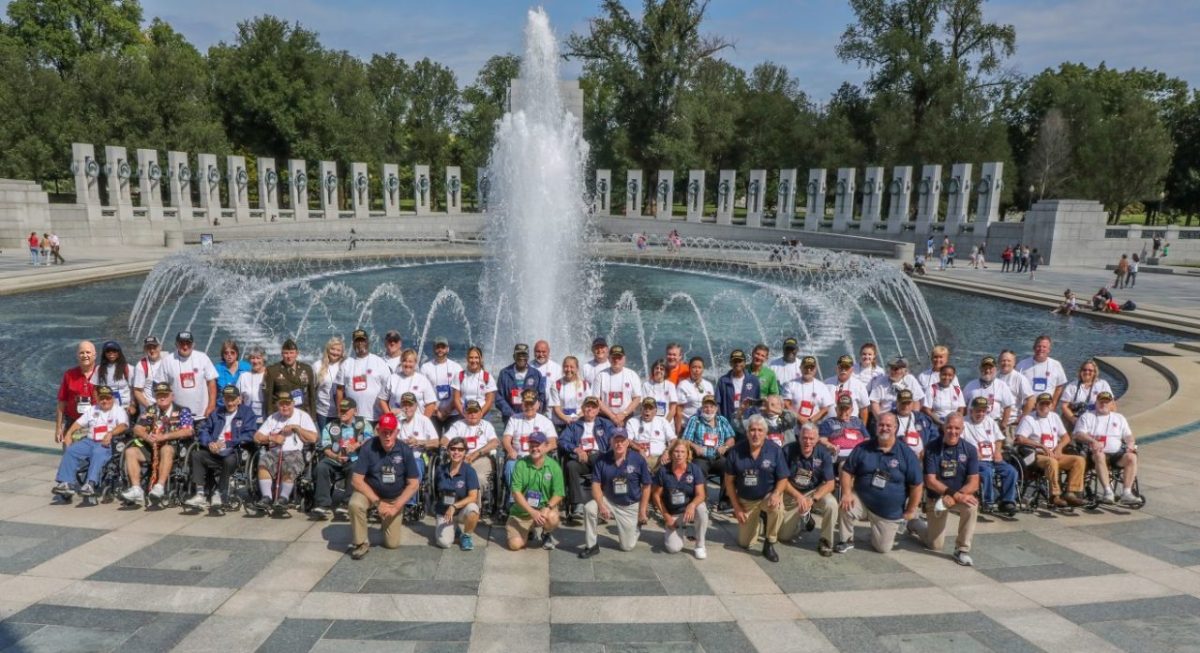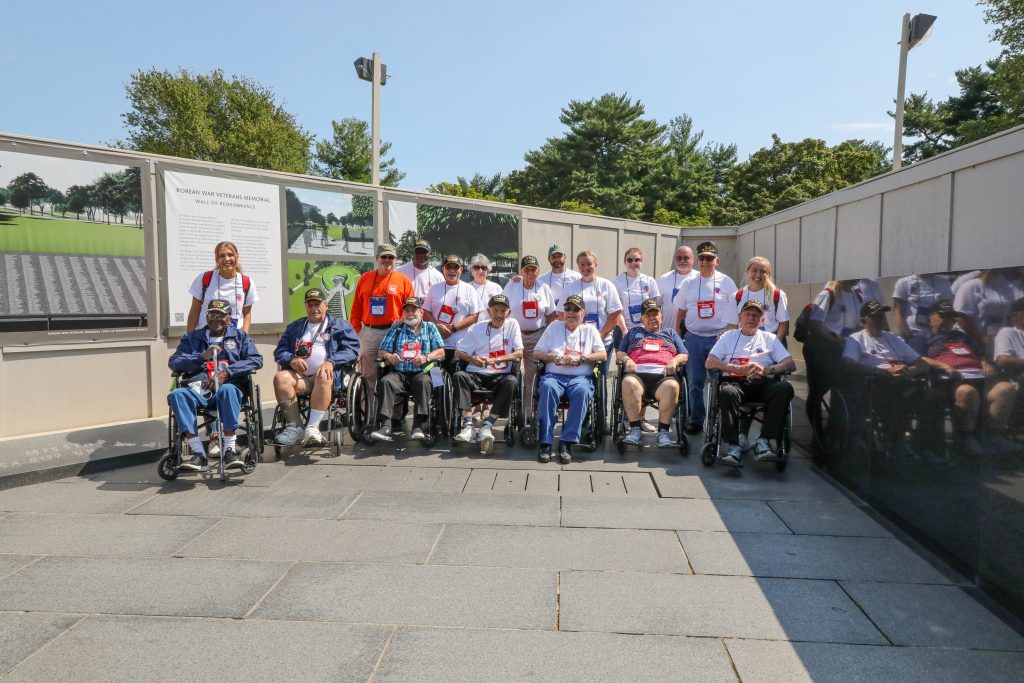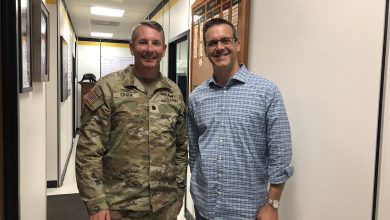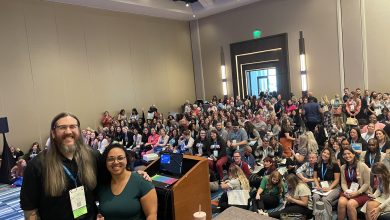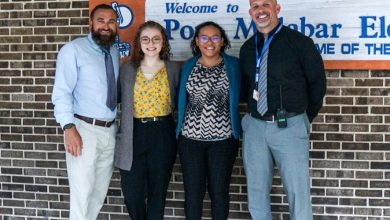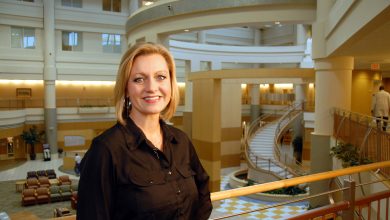A History Lesson, No Classroom Required
Five Clinical Psychology Students Served As Guardians for an Honor Flight
Delaney Bennett’s great-great-uncle fought in the Korean War as a soldier in the U.S. Army. He was later declared missing in action, his remains never recovered. A unique experience nearly 70 years after the war ended has allowed Bennett to better understand the wartime experiences of the beloved relative she never met.
Bennett was among five students from the College of Psychology and Liberal Arts who served as guardian escorts to aging veterans on a Space Coast Honor Flight. She and Antwana Drayton, Brittany Clayton, Gabby Gavitt and Kyla Jones joined other volunteer guardians in assisting about two dozen veterans on a whirlwind, one-day trip to the war memorials in Washington, D.C. on Sept. 11.
The students, all in the clinical psychology program, were funded by donations from the Cape Canaveral chapter of the Military Officers Association of America (MOAA).
Bennett, a second-year student in the program, said her great-grandfather and both of her grandfathers served in the armed forces, in addition to her great-great-uncle’s service.
“So, the trip held a special place in my heart and meant a lot to my family as I was able to attend with another Korean War veteran, Joe Bouchard, and visit the Korean War memorial,” she said. “Another reason I joined was because I am currently applying to join the Army through the Health Professions Scholarship Program to be a military psychologist with them in the future. The Honor Flight reflects my interest in working with active-duty and veteran service members.”
Another student guardian, Antwana Drayton, is also involved in the Health Professions Scholarship Program. A fourth-year student in the clinical psychology doctoral program, she accompanied Vietnam War veteran Charlie Yates. The trip, she said, deepened her understanding of military culture and experience.
“I understood the level of sacrifice that these individuals underwent and were better able to see them as individuals with families depending on their (safe) return. I was also able to put actual storylines with the historical context of the process,” Drayton said. “In the classroom, we are taught to conceptualize individuals specific to their historical and current context. With this experience, I can better acknowledge how history impacts our contemporary adaptation to worldviews and opportunities.”
The experience is a powerful extension of key tenets of the Psy.D. program, said program chair and professor Victoria Follette, noting that many students plan to work in Veterans Administration centers or with active-duty military personnel.
“The Honor Flight allows the opportunity for our students to connect with veterans who have served our country,” Follette said. “The flight also allows students the opportunity to learn from our veterans and to be better prepared to provide clinical services to a range of individuals. I would say it allows students the opportunity to make a difference in someone’s life, and that is what we are all about in the clinical psychology program.”
Bennett and Drayton spoke of the educational benefits of their experience.
“This experience surely has enhanced my clinical knowledge learned in the classroom, as I am now more familiar with veterans and their experiences,” Bennett said. “This will allow me to provide beneficial services in the future to active-duty and veteran populations.”
Drayton said, “I think that this information transfers to the classroom in understanding American history and how individuals make sacrifices for the good of people. I found that culturally speaking, it was imperative to receive an account of matters taking place during various war times, and that’s why the Honor Guard process was so powerful.”

Antwana Drayton with veteran Charlie Yates. 
At the Korean War Memorial. 
At the Vietnam War Memorial. 
Delaney Bennett with veteran Joe Bouchard.

